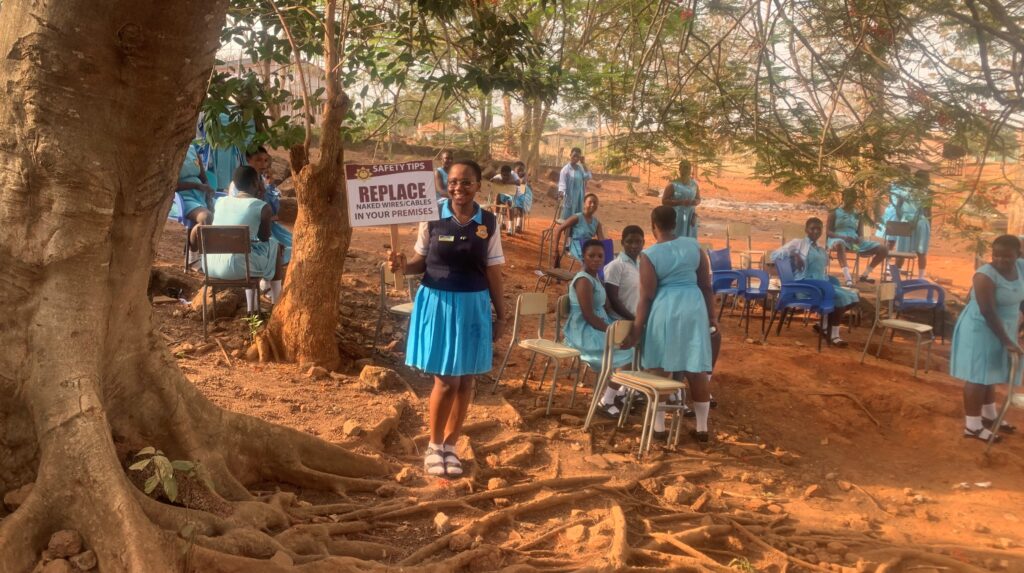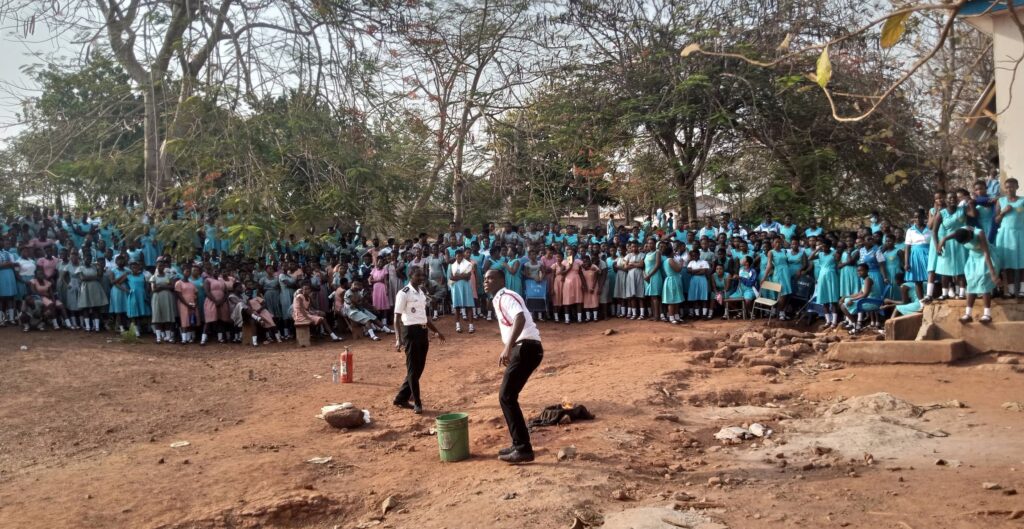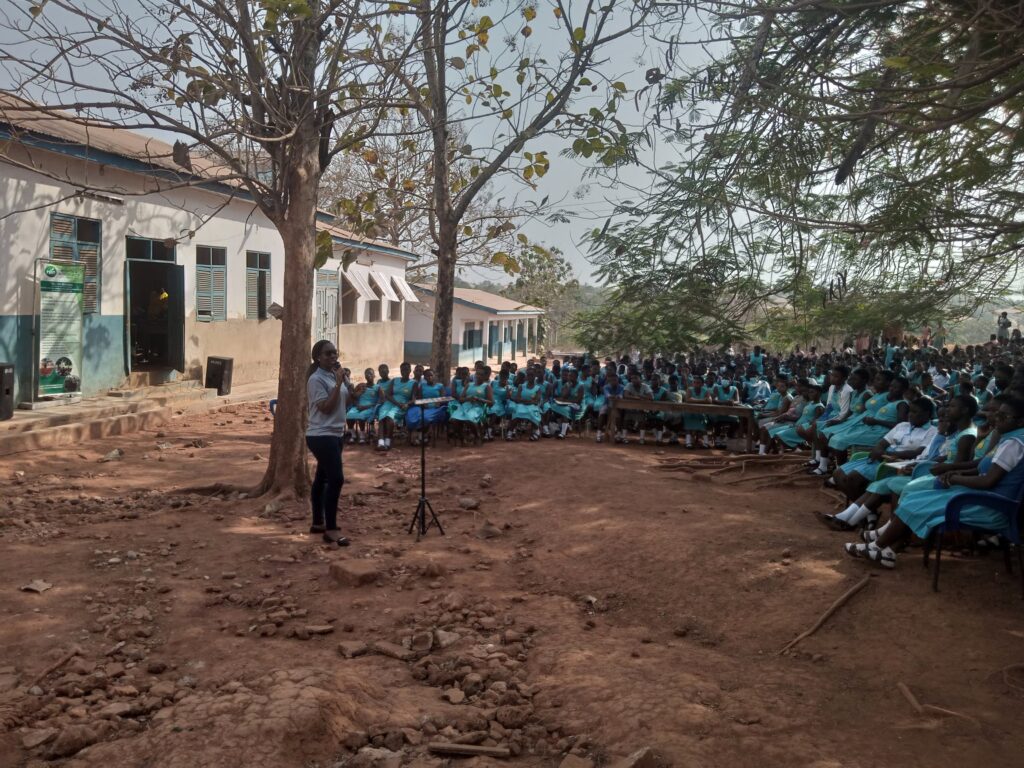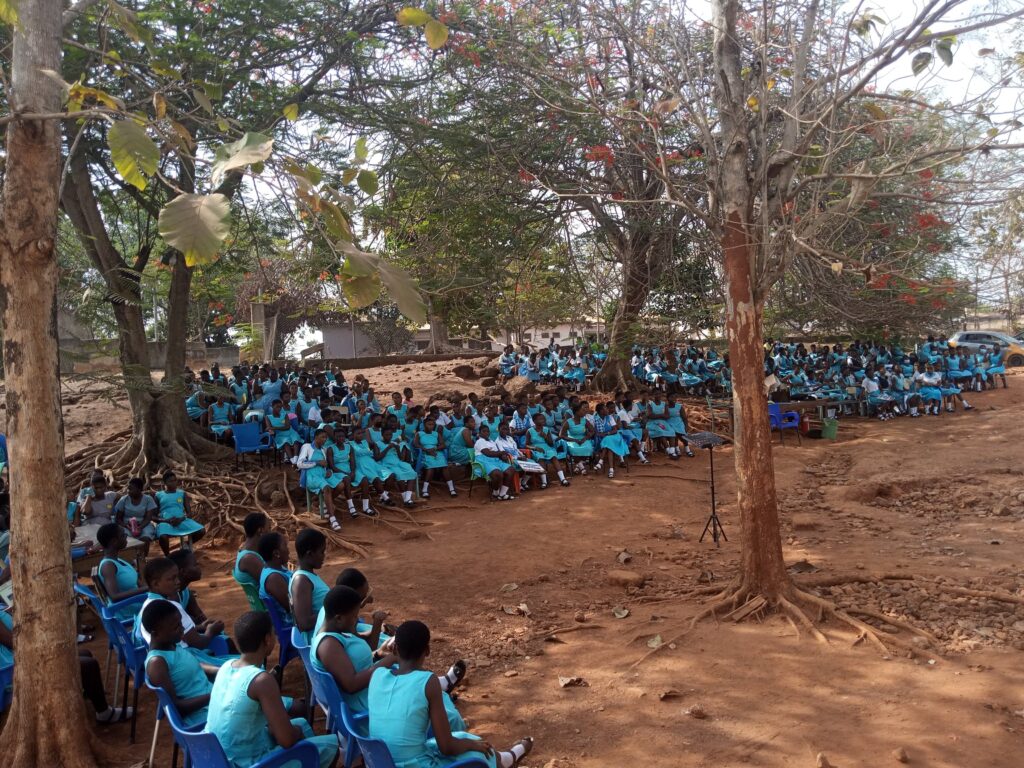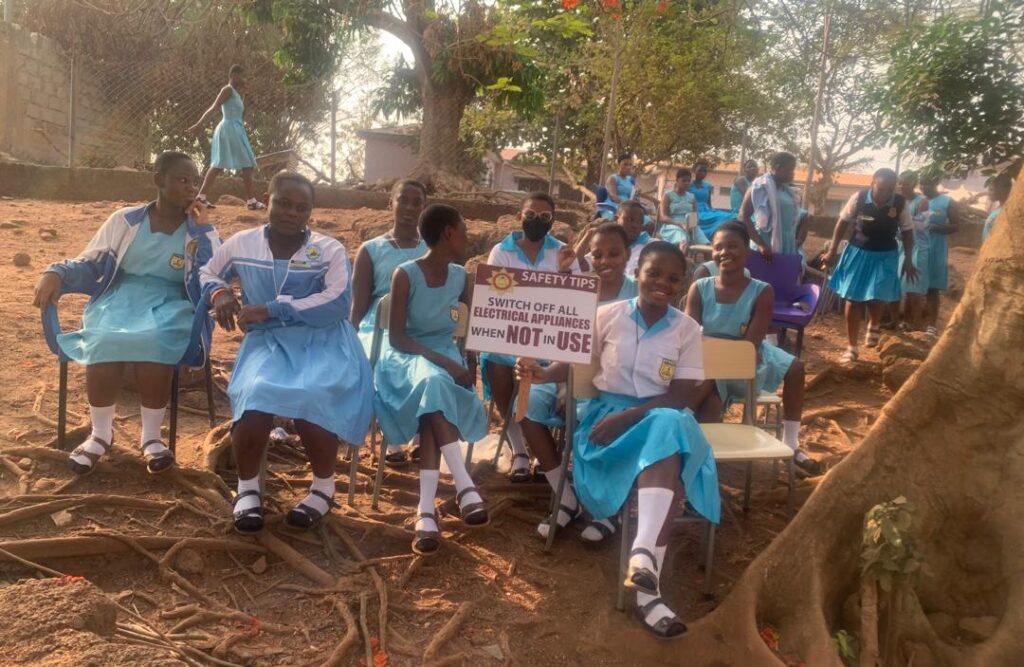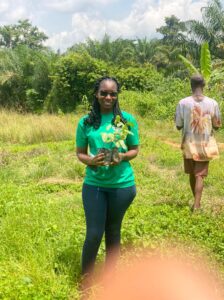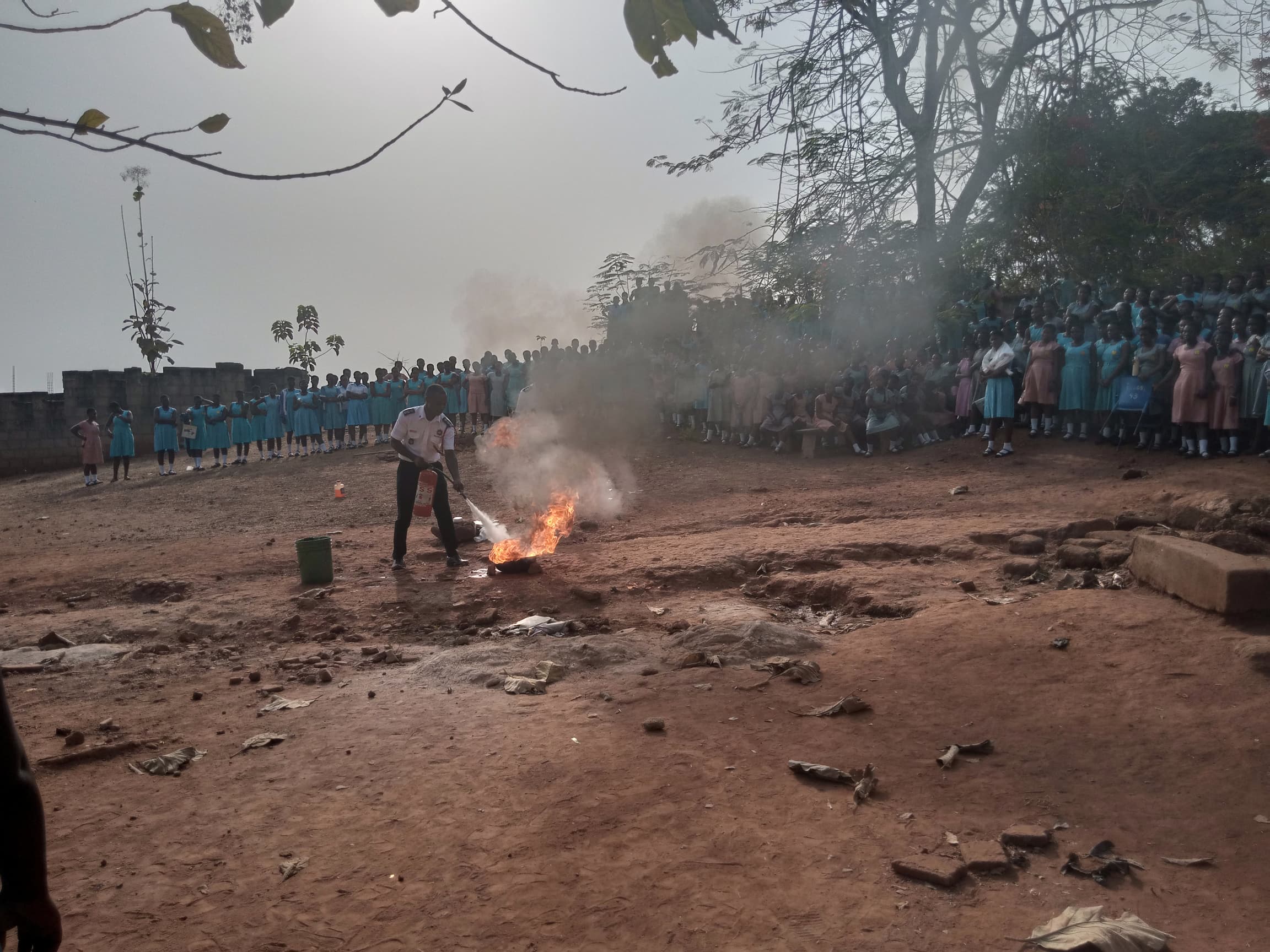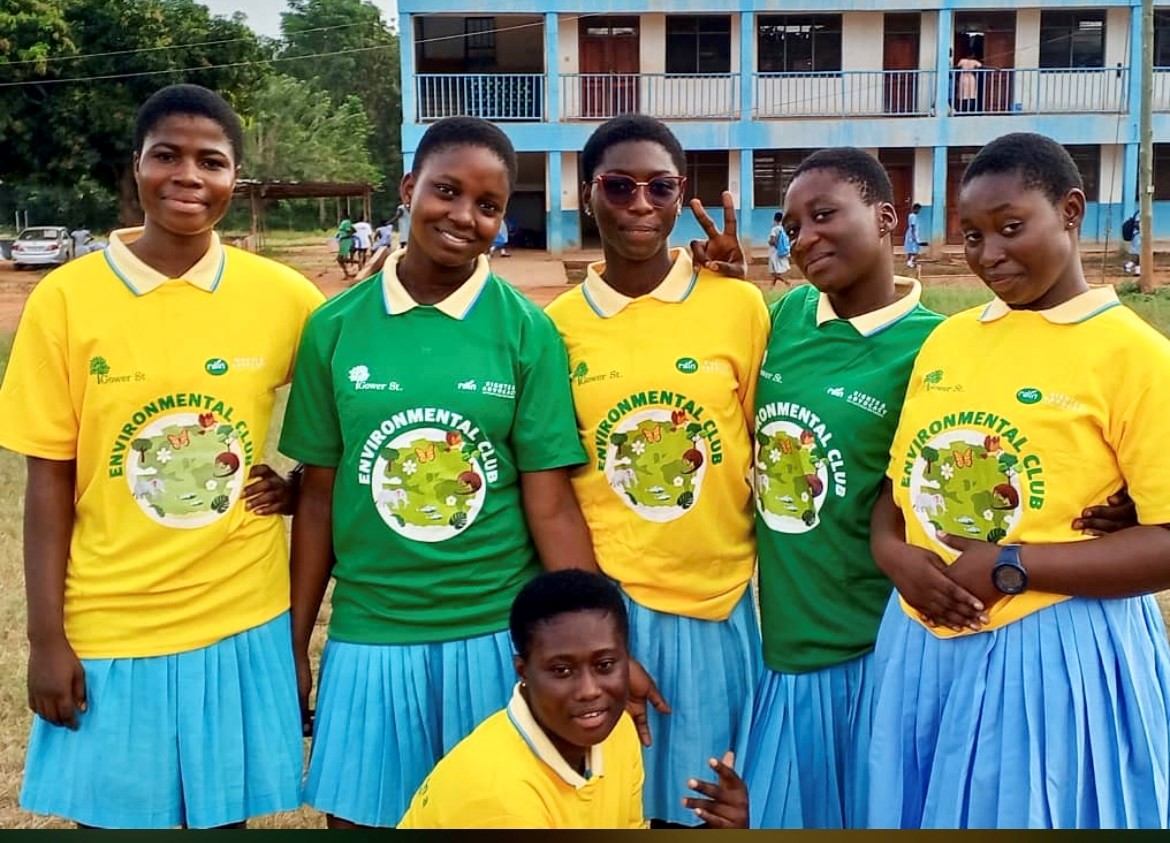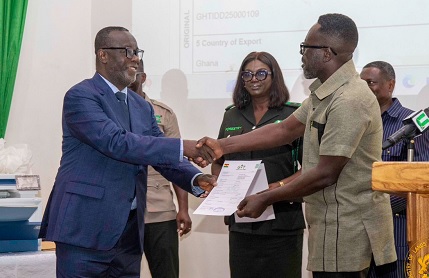As part of RAIN’s ongoing commitment to environmental education and advocacy, the team engaged students of St. Mary’s Girls Senior High School together with officials form the Konongo Fire Station in a transformative session on climate change and fire safety. This initiative, under the Gower Street Project—Partnership for Forest Protection and Livelihood in a Changing Climate—aims to instill environmental consciousness in the younger generation and equip them with practical safety skills.
The session commenced with a presentation by Paulina Amenyona, who provided a comprehensive overview of climate change. She explained it’s definition and delved into its primary causes, emphasizing both natural and human-induced factors to include greenhouse gas emissions from burning fossil fuels, deforestation, unsustainable agricultural practices, and industrial pollution. She highlighted how these activities contribute to global warming, resulting in erratic weather patterns, prolonged droughts, rising sea levels, and loss of biodiversity.
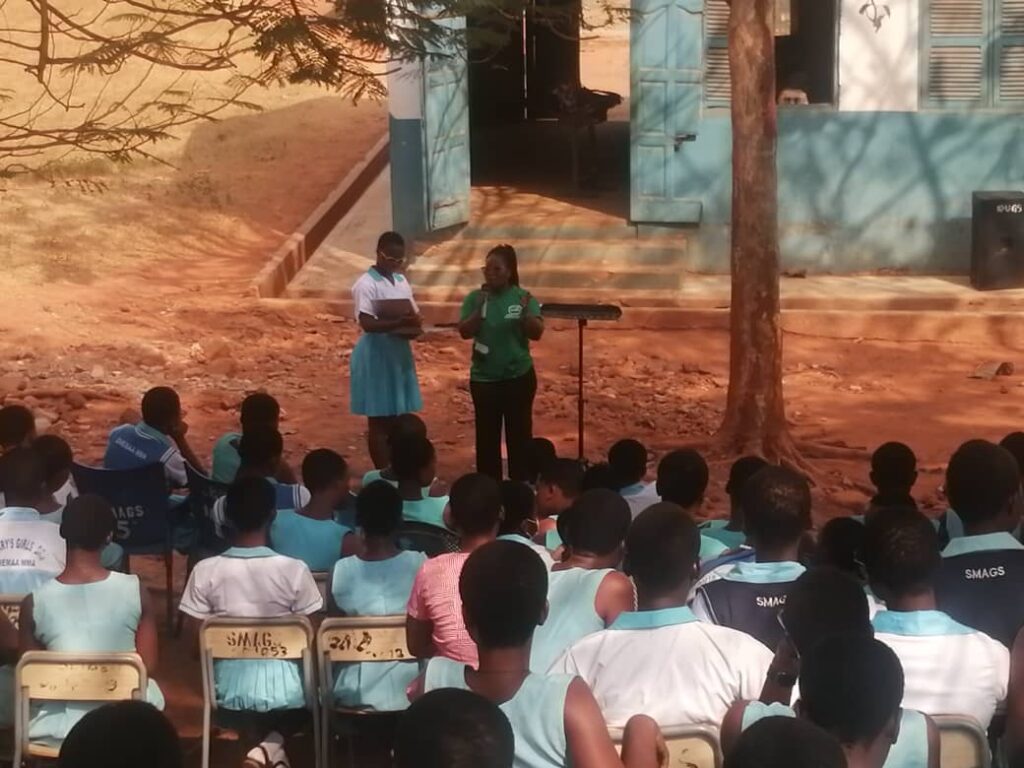
Participants were further taking through adaptation and mitigation strategies essential for combating climate change. She underscored the importance of afforestation and reforestation efforts, sustainable agricultural techniques, and climate-smart innovations that enable communities to withstand environmental changes. A key adaptation strategy she highlighted was waste management and plastic recycling as a means of reducing environmental pollution and creating economic opportunities. She encouraged students to adopt responsible waste disposal habits and explore innovative ways to upcycle plastic waste into useful products. One creative approach discussed was repurposing discarded plastic into stylish handbags and tote bags for personal use and commercial sale.
Following the climate change discussion, Mr. Anthony Kobina Barnes, ADO1, led an engaging session on fire safety awareness and preventive measures. He explained the science behind fire, detailing its stages—ignition, growth, fully developed, and decay—and the critical role of oxygen, heat, and fuel in sustaining a fire. Special emphasis was placed on fire hazards in dormitory settings, where electrical faults, improper use of appliances, and flammable materials pose significant risks.
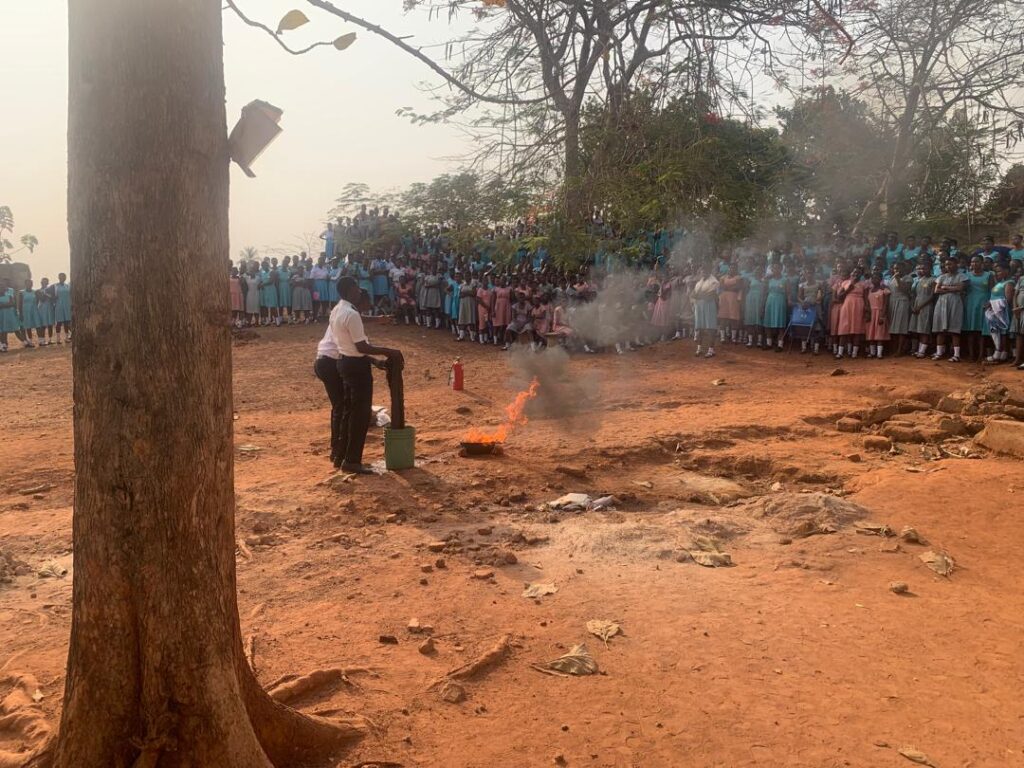
Building on this, Mr. Raphael Dumfe Badu (ADO 1), conducted a hands-on fire extinguisher demonstration. He provided a detailed breakdown of fire extinguisher components and classifications, explaining how different extinguishers—water, foam, carbon dioxide, and dry chemical—are suited for specific fire types. Using the PASS technique (Pull, Aim, Squeeze, Sweep), students participated in practical fire-fighting exercises, learning how to respond effectively in emergency situations. To conclude, the students were introduced to the environmental club initiative, where they were encouraged to sign up through a designated teacher for future engagements. The session not only deepened students’ understanding of climate change and fire safety but also sparked enthusiasm for environmental advocacy within the school.
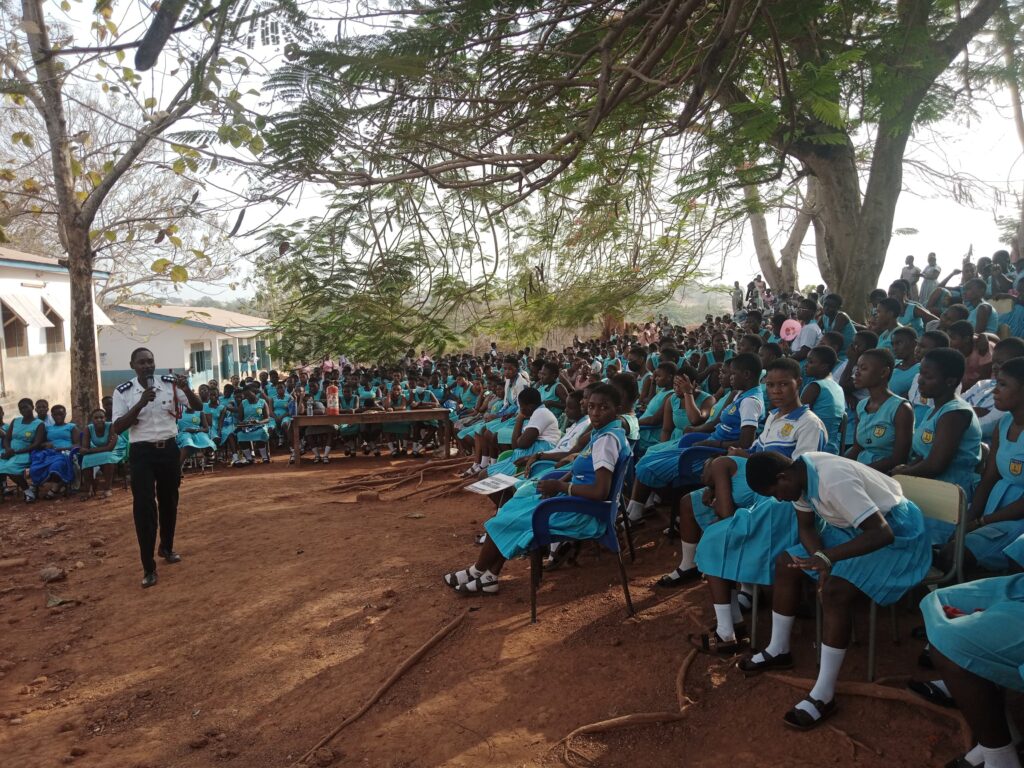
RAIN is committed to sustaining this engagement by following up with the school to finalize the list of interested students, providing resources for the newly established environmental club, and scheduling future visits to support its activities. The successful session at St. Mary’s Girls Senior High School marks another milestone in RAIN’s mission to nurture environmentally responsible young leaders and promote sustainable community practices.
Stay connected with RAIN as we continue to empower communities through education, advocacy, and action for a resilient environment.
